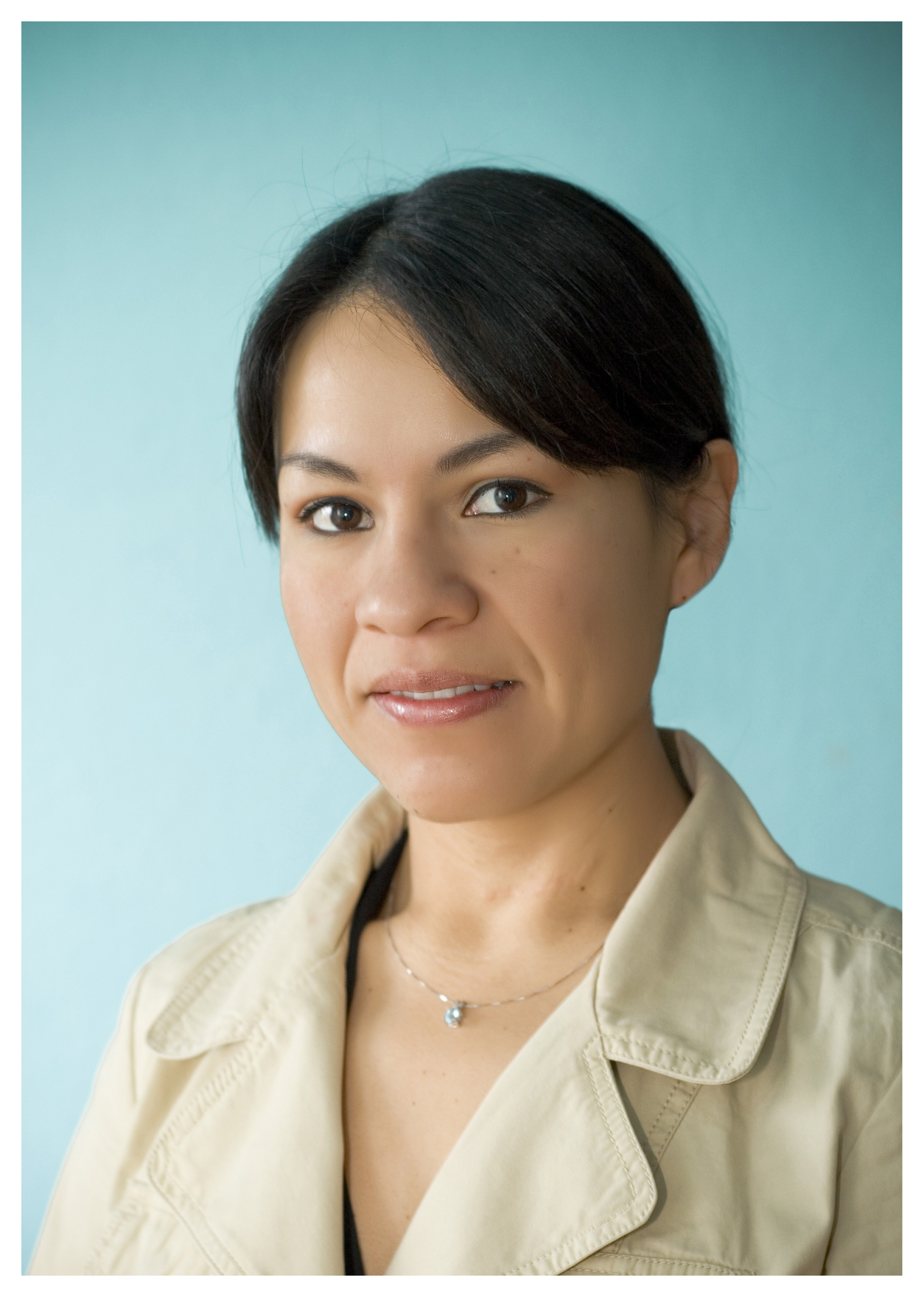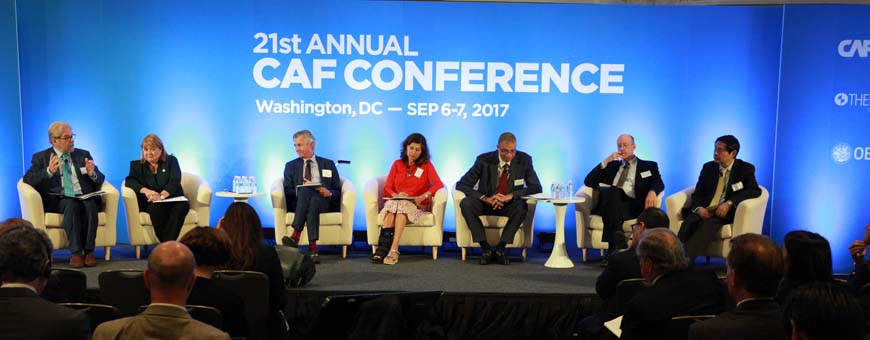 Carola Balbuena/ @cbscarola
Carola Balbuena/ @cbscarola
Regulatory Affairs and Public Policy Manager of Telefónica
Within the context of the 21st Annual CAF Conference, more than 1,000 participants gathered together last week including regional experts, diplomats, economists, and representatives from the private sector like Telefónica and civil society. During the two days that this conference took place, experts analysed the current political and economic status of the different Latin American countries, as well as the vision that President Donald Trump’s administration has regarding the region.
Telefónica was present in the event because it is a company that is committed with the economic and social development of the region, and because it considers that although investments in infrastructures will not by themselves bring the multiple benefits of the digital age, they are a fundamental requirement for guaranteeing an inclusive information society.
As for the challenges facing the region in terms of economic development, a stable environment can be perceived in macroeconomic and inflationary terms, assured the president of CAF, Development Bank of Latin America, Luis Carranza. However, it’s obvious that the economic growth of the region has stalled in the last few years, leading to the mandatory question regarding what is the formula that these countries will use to recover a reasonable growth index. In this frame of mind, Carranza made a call to promote a pact for productivity where innovation, R&D, and investment would go hand in hand. For his part, Mario Bergara, President of the Bank of Uruguay, emphasized the importance that having a flexible exchange rate represents for modern economies; this flexibility has contributed to the stability of the financial markets in some of the countries in the region, said Bergara. Furthermore, Bergara referred to the challenges and opportunities that technologies such as the Internet, Big Data, and automation mean for the region. One of the central subjects is that of the taxation of the services.

The decentralization of services as a consequence of the use of Internet platforms such as Uber and Airbnb is generating challenges in issues such as the collection of taxes, where governments are losing important sources of revenue. These taxes cannot simply disappear because governments have to recover these losses through the increase of taxes to other services, with the consumer being the party most affected by this.
The Latin American heads of the International Monetary Fund (IMF), Alejandro Werner, and the World Bank, Jorge Familiar, provided their economic insights for the region. Familiar indicated that the region is not returning to the levels of poverty that were characteristic of the 1980s; the middle class continues to exits. The region continues to adapt to fiscal adjustments and continues to promote investment; in addition, the region continues to be open to free trade despite the global tendency towards a return to a protectionist model.
For his part, General Rick L. Waddell, Director of the White House’s National Security Council Office of Western Hemisphere Affairs, inaugurated the second day of the conference. Waddell emphasized that the purchasing power of the region in the last few decades has promoted investments by the private sector in several countries in the region. Issues such as the fight against drug trafficking and corruption continue to be problems that afflict Latin American societies, and he made a call to fight these ailments. Similarly, Waddell also referred to free trade, indicating that even though the United States will continue to promote a liberalizing agenda, the government of President Trump will revisit treaties that have been exceeded by the challenges of the digital era itself, such as the case of the North American Free Trade Agreement (NAFTA). The president of the United States assured that NAFTA 2.0 will have to respond to these and other challenges of an interconnected world. However, and as the trade representative from the United States (USTR) Robert Lighthizer has been continuously repeating, one of the subjects that most concerns this administration is the subject of the trade balance deficit of the United States. Regarding this point, Santiago Levi, Vice-President of Sectors and Knowledge at the Inter-American Development Bank, warned that the deficit problem in the trade balance of the United States will not be resolved through renegotiating NAFTA; the United States will have to solve this problem through the generation of better savings and investment indexes, as well as by finding solutions to for the enormous fiscal deficit that is burdening that nation.
The conclusions reached in this event are an invitation to reflect and stimulate dialogue between the different actors of society. This is why we will continue to participate in these types of forums in order to keep nurturing this dialogue and to expand our understanding of the needs that afflict our Latin American countries.








